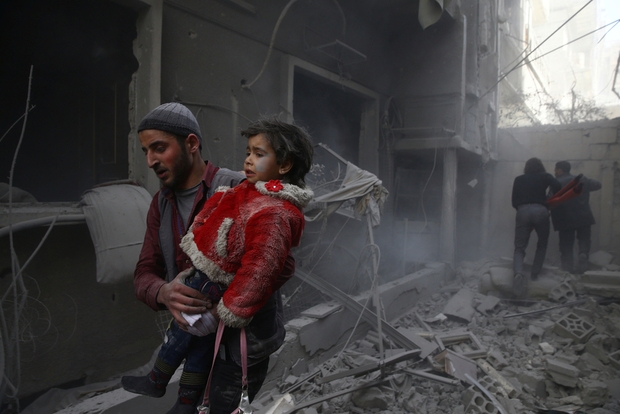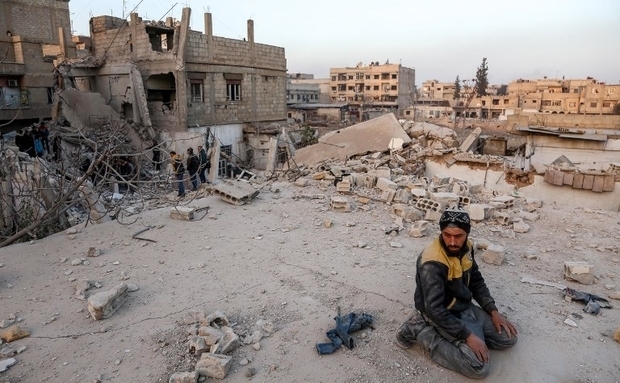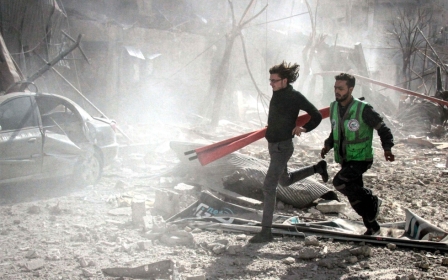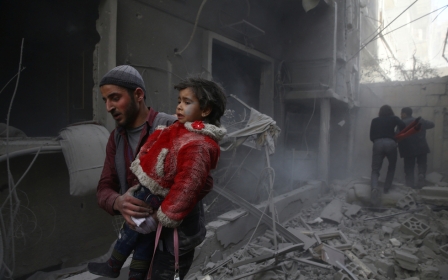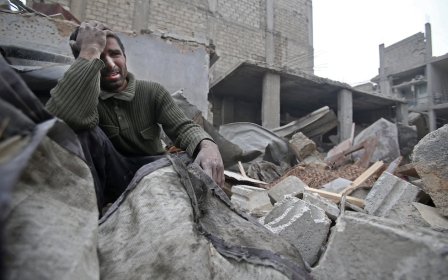Eastern Ghouta 'struggling to stay alive' after fifth day of bombing
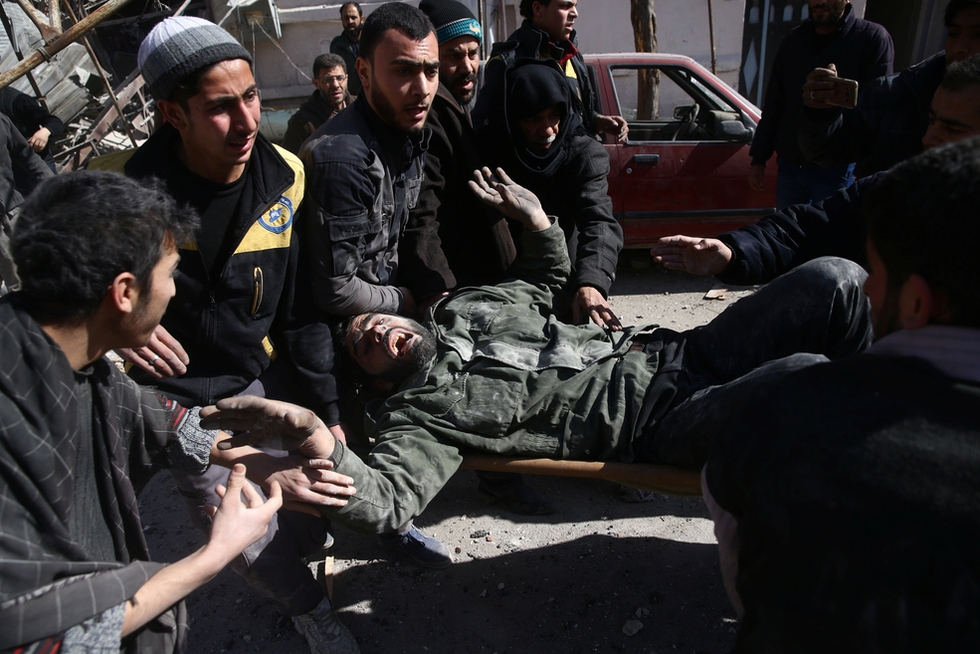
Residents trapped inside Eastern Ghouta endured a fifth day of bombings as Russian and Syrian jets continued to rain down air strikes killing at least 220 civilians.
Continous daily bombardment since Monday overwhelmed rescue workers and forced thousands of families to seek shelter in cellars and their homes.
World powers failed to back an appeal by UN officials this week for a month-long ceasefire to allow for desperately needed aid deliveries and medical evacuations.
From 2011 until now, there has never been the level of bombardment we've seen in the last 96 hours
- Dr Hamza, Eastern Ghouta resident
During a few hours of calm on Friday, residents took advantage of the lull to begin clearing rubble from their doorsteps and sweeping away broken glass.
In Douma, some civilians were seen scouring for salvageable items, while others rushed to the market to find food and other supplies.
But around mid-morning, an announcement blasted over mosque minarets warned of incoming strikes: "Surveillance plane in the sky. Clear the streets."
Soon after, twin strikes hit the town of Erbin, where two dozen people were killed on Thursday.
Medics in the town reported being overwhelmed by the relentless bombardment.
"From 2011 until now, there has never been the level of bombardment we've seen in the last 96 hours," said Hamza, one of the doctors treating the wounded.
'Humanitarian disaster'
The Syrian Observatory for Human Rights said at least 75 people died on Thursday, three of wounds suffered the previous day.
That brought the civilian death toll since Monday to nearly 220.
UNICEF director Henrietta H. Fore said that life inside Eastern Ghouta was a "living nightmare" for the thousands of residents in the rebel enclave.
“For children who remain trapped under siege and under wanton, heavy violence across Syria, life is a living nightmare," said Fore. "They are struggling just to stay alive.”
Eastern Ghouta is home to an estimated 400,000 people who have lived under crippling government siege since 2013.
More than 4,000 families live in basements and bunkers for fear of air strikes, according to Save the Children.
"The siege means there is nowhere for them to escape. There must be an immediate halt to the fighting and an end to the siege," said Save the Children's Syria response director, Sonia Khush.
CARE International said the intensity of the air strikes had made it extremely difficult for relief workers to assist the needy.
"Our partners are having a hard time moving around, so how can they reach vulnerable people?" the group's communications director for Syria, Joelle Bassoul, asked.
"If there is no ceasefire, if this is all left unheard, we cannot imagine the scale of the humanitarian disaster," she said.
Eastern Ghouta is supposed to be one of four "de-escalation zones" declared last year in a bid to reduce the bloodshed.
Russia, US cross swords
French Defence Minister Florence Parly on Friday called for an end to air strikes in Syria and the opening of humanitarian corridors.
"We are very worried. The air strikes need to end," Parly said on France Inter radio. "Civilians are the targets, in Idlib and in the east of Damascus. This fighting is absolutely unacceptable."
UN aid officials appealed for a month-long humanitarian truce to allow aid to be delivered and the sick and wounded brought out for treatment.
But on Thursday the Security Council failed to support the proposal.
Washington backed it, but Damascus ally Moscow dismissed it as "not realistic".
The two governments also crossed swords over US-led air strikes that hit forces allied to Damascus in eastern Syria late Wednesday and early Thursday.
US Defence Secretary Jim Mattis said the coalition acted in self-defence after pro-Damascus forces moved on an area under the control of the US-backed Syrian Democratic Forces.
At least 100 pro-government fighters were killed, a US military official said.
The Syrian foreign ministry condemned the bombardment as a "war crime," an accusation echoed by the Russian ambassador to the UN.
"To confront those who fight international terrorism on the ground in Syria is criminal," Vassily Nebenzia said.
Wounded pro-government fighters were taken to the military hospital in the government-controlled eastern city of Deir Ezzor.
A reporter contributing to AFP saw at least six fighters, lying on hospital beds in sparsely equipped wards.
Middle East Eye propose une couverture et une analyse indépendantes et incomparables du Moyen-Orient, de l’Afrique du Nord et d’autres régions du monde. Pour en savoir plus sur la reprise de ce contenu et les frais qui s’appliquent, veuillez remplir ce formulaire [en anglais]. Pour en savoir plus sur MEE, cliquez ici [en anglais].


